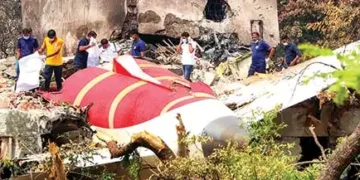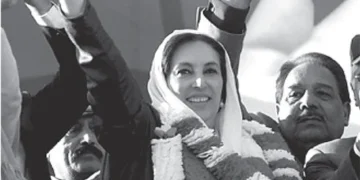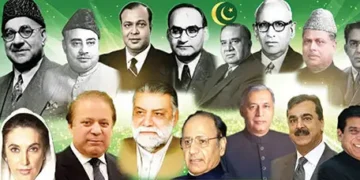MJ Akbar
IT is the average experience, never the subject of any inquiry, that reveals the dilapidated state of what was once a fabled name. Not too many days before the crash, we were on an Air India evening flight from Vienna to Delhi.
The crew was busy ignoring our corner of the aircraft, but patience has become a necessary virtue. A colleague seated next to me wanted nothing more than a quick dinner before sleep. After nearly two hours of watching the crew busy with chat and service elsewhere, one was forced to walk up and suggest that perhaps we might be entitled to a little attention.
My colleague, barely able to contain his irritation, had decided to forget the meal, only to discover that his seat would not unfold into an airline bed. A hinge was broken. This business-class seat did not break in Vienna. It was clearly damaged before the plane left India. No one cared. The management forced flights to remain operational despite dysfunctional seats; nor did they have the courtesy to keep the seat empty. No explanation was offered because there was none.
Passenger complaints are lucky to get a polite non-sequitur. Most flyers are too relieved upon reaching their destination to pursue their case. While writing, news came of an Air India Boeing 787 flight from Tokyo to Delhi being diverted to Kolkata because the air-conditioning had failed. Before the Ahmedabad tragedy the flight would have continued to Delhi in all likelihood.
Typical smokescreen
Wilson ended his letter of apology to members of Air India’s Maharaja Club not in sorrow but with “Warm regards”. Which world is he living in? Sensitivity is not required from Air India’s superior executives but becomes cause for punitive action in the case of the crew.
The suspension of crew members for dancing at a private party a few days after the accident is a typical smokescreen. Flying crews live in constant tension. Accidents do not spare young lives. They fly continually. They live danger. They died in Ahmedabad. Making them scapegoats is an insult to their service. The controversial party was a misdemeanour; but it did not put the lives of passengers at risk. The people who deserve to be suspended are those who suspended the crew. Today a seat goes wrong, tomorrow an engine.
An interesting fact from the litany of coincidences that bustle around aviation history: There have been only five other instances of a sole survivor in an air crash. Cecelia Cichan lived on August 16, 1987 when 156 died. On March 6, 2003 Youcef Djillali survived an Air Algérie crash which killed 102; as did Mohammed el-Fateh in Sudan on July 8, 2003; Bahia Bakari on June 30, 2009 in Yemen; and nine-year-old Ruben van Assouw at Tripoli on May 12, 2010.
The city of Dreadful Day
Those taking a flight to London for a summer break might want to check a few statistics. This was published in The Times: 60,000 mobile phones are snatched each year in London, or one every three minutes; nearly 10,000 of them in touristheavy West End. Nearby Westminster St James comes second with 20,575. The tally for the last four years is some 231,000 phones, around 90,000 in London. The real figure is higher since many thefts go unrecorded largely because the chance of recovery is a virtual zero.
The police have surrendered to petty criminals. Less than 1 per cent of thefts and break-ins result in police action. Little wonder then that the big shift in tourism is towards Moscow, which has seen a 40 per cent rise from 2024. Even Arabs are deserting London. There has been a 570 per cent surge in Saudi tourism to Moscow, which means terrific news for the Russian economy.
An editorial in the weekly magazine Spectator dated May 7, 2025 is candid about Britain: “…our public squares are squalid, lawless, derelict spaces… Shoplifters go unpunished, fly-tipping is unpursued, drug-taking and dealing are commonplace. The busy commercial and social life of the high street a generation ago has been supplemented by rows of barber shops many of which are cover for money laundering, vape stores which feed teen addictions and vacant sites which distant landlords feel no incentive to fill. The air of decline hangs as heavy over these precincts as the persistent and sickly aroma of cannabis smoke”. Rudyard Kipling dismissed British Calcutta as the city of dreadful night. Has London become the city of dreadful day?

































